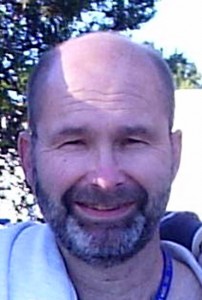As we blogged in this space last month, Judea Pearl — winner of the 2011 ACM A. M. Turing Award “for fundamental contributions to artificial intelligence through the development of a calculus for probabilistic and causal reasoning” — delivered his Turing Award Lecture as the opening invited address at the 26th AAAI Conference in Toronto, Canada, in late July. ACM today posted video of the lecture on its website. Watch it here.
And read a summary of Pearl’s lecture, as previously contributed to this blog by Vanderbilt computer science and computer engineering associate professor Douglas Fisher, after the jump.
Originally posted Aug. 2, 2012:
 Judea Pearl received the 2011 ACM A. M. Turing Award “for fundamental contributions to artificial intelligence through the development of a calculus for probabilistic and causal reasoning.” In this guest post, Douglas Fisher, associate professor of computer science and computer engineering at Vanderbilt, summarizes Pearl’s Turing Award Lecture, delivered at last week’s AAAI Conference.
Judea Pearl received the 2011 ACM A. M. Turing Award “for fundamental contributions to artificial intelligence through the development of a calculus for probabilistic and causal reasoning.” In this guest post, Douglas Fisher, associate professor of computer science and computer engineering at Vanderbilt, summarizes Pearl’s Turing Award Lecture, delivered at last week’s AAAI Conference.
![Judea Pearl, University of California at Los Angeles [image courtesy ACM] Judea Pearl, University of California at Los Angeles [image courtesy ACM]](https://cccblog.org/wp-content/uploads/2012/03/pearl.jpg) Professor Pearl delivered his Turing Award Lecture as the opening invited address at the 26th AAAI Conference in Toronto, Canada, last week. He opened by acknowledging the support of the AAAI community in a great collaborative enterprise, a remarkable “journey” as he said, and he shared the award with the community and his coauthors. He also cited three of his seminal papers, which had been presented at past AAAI conferences and that presaged the hierarchy of processes — probabilistic, causal, and counterfactual — that formed a trajectory of his research and a focus of his talk: “Reverend Bayes on Inference Engines: A Distributed Hierarchical Approach” from the second annual AAAI conference; and “Symbolic Causal Networks” with Adnan Darwiche and “Probabilistic Evaluation of Counterfactual Queries” with Alexander Balke, both from the 12th annual AAAI conference (more following the link…).
Professor Pearl delivered his Turing Award Lecture as the opening invited address at the 26th AAAI Conference in Toronto, Canada, last week. He opened by acknowledging the support of the AAAI community in a great collaborative enterprise, a remarkable “journey” as he said, and he shared the award with the community and his coauthors. He also cited three of his seminal papers, which had been presented at past AAAI conferences and that presaged the hierarchy of processes — probabilistic, causal, and counterfactual — that formed a trajectory of his research and a focus of his talk: “Reverend Bayes on Inference Engines: A Distributed Hierarchical Approach” from the second annual AAAI conference; and “Symbolic Causal Networks” with Adnan Darwiche and “Probabilistic Evaluation of Counterfactual Queries” with Alexander Balke, both from the 12th annual AAAI conference (more following the link…).
Professor Pearl’s talk, entitled “The Mechanization of Causal Inference: A ‘Mini Turing Test’ and Beyond,” celebrated the abilities and propensity of humans to do counterfactual or “what if” reasoning in their exploration of alternatives. He opened with the “obsession” of humans to ascribe cause, and the broad importance of counterfactual reasoning in human affairs. He cited Democritus and Hume, and related the Hebrew story of Abraham, “the first scientist,” who ascertained through what if reasoning God’s “threshold” of righteous-to-wicked that was necessary to save the city of Sodom. He laid out a scholarly evolution of causal calculus, citing economist Trygve Haavelmo, among others; traced the evolution of his own formal models to support efficient probabilistic, causal and counterfactual reasoning; and illustrated these on classic examples and from real applications, to include medicine. He closed with the importance of the causal calculus in making projections on the effects of intervention and the transferability of knowledge across domains.
Professor Pearl emphasized the special role of computer science, and AI particularly, in understanding, abstracting and modeling process, to include human decision processes. As a discipline, “we don’t have the luxury of philosophizing” if we are to build intelligent systems, he said. Professor Pearl’s work (to include his early seminal work on heuristic search, not directly cited in the Turing Award), is an ideal example of the utility of computational abstractions that bring about profound changes across disciplines; the work is also a manifestation of how someone with wide-ranging and often humanist interests and passions can pursue these with computational abstractions.
Professor Pearl’s talk caused me to explore further, and I suggest those interested watch his talk at the Judea Pearl Tribute Symposium in 2010 (below) in lieu of the Turing Award Lecture (not yet online), to include his dedication to his teachers, his promotion of computer science and AI, and his advocacy of history-contextualized science instruction — putting human faces to science. His paper presented to the Haavelmo Centennial Symposium is also well worth reading.










I enjoyed Eric Horvitz’s introduction of Judea Pearl’s lecture at UAI-12: http://www.auai.org/uai2012/pearl_comments_horvitz.pdf